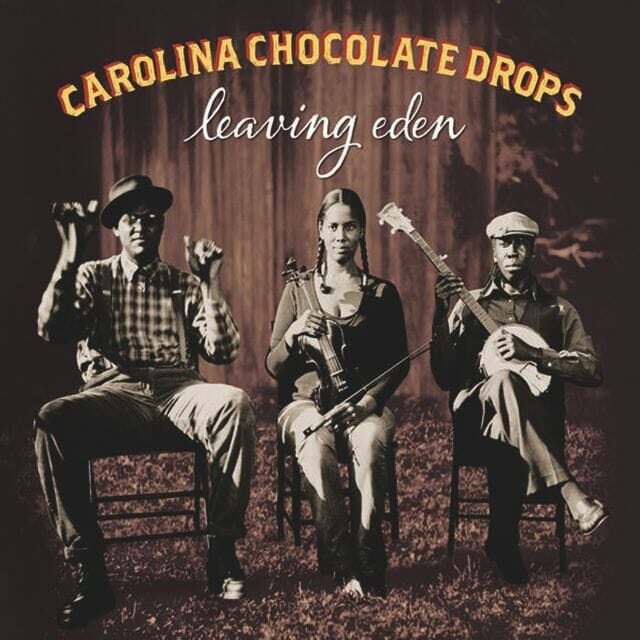
 Leaving Eden finds the Carolina Chocolate Drops in the unenviable position of having to follow up their marvellous, Grammy-winning, 2010 album, Genuine Negro Jig. The Carolina Chocolate Drops are currently spearheading a revival of old-time American music, trying to highlight the important, but often neglected place of African-American musicians in the tradition of string bands, jug bands and Piedmont blues, in a style that peaked in popularity in the 1920s and 1930s.
Leaving Eden finds the Carolina Chocolate Drops in the unenviable position of having to follow up their marvellous, Grammy-winning, 2010 album, Genuine Negro Jig. The Carolina Chocolate Drops are currently spearheading a revival of old-time American music, trying to highlight the important, but often neglected place of African-American musicians in the tradition of string bands, jug bands and Piedmont blues, in a style that peaked in popularity in the 1920s and 1930s.
But the band isn’t simply interested in reproducing historical artifacts. Rather than create the old sound by rote, they breathe life into the forgotten material in a way that is extremely creative, drawing on the old music for inspiration but always leaving it with an original spin.
Leaving Eden is the band’s first album with their new lineup. After founding member Justin Robinson left to pursue a solo career (Justin Robinson and the Mary Annettes released their debut album, Bones for Tinder in January), the band replaced him with a new multi-instrumentalist and a beatboxer. With Robinson’s departure, Rhiannon Giddens emerges as the clear leader of the group.
The album starts with two short instrumentals, both traditional. The first, “Riro’s House”, is an upbeat fiddle/banjo tune, and the second is a slow, but catchy, tune called “Kerr’s Negro Jig”. The album picks up the pace quickly with Gidden’s strong vocals on an old bluegrass tune called “Ruby, Are You Mad at Your Man?”.
The album then continues with a series of cover songs and originals. Perhaps the most random cover is a song called “Mahalla,” written by Hannes Coetzee, a guitarist from the Karoo region of South Africa. Coetzee is a YouTube sensation known for his unique style of playing slide guitar using a spoon in his mouth.
The title track is one of the gentler songs of the album, showcasing a more elegant side of Gidden’s opera-trained voice. The highlights of the album are “Country Girl” and “I Truly Understand That You Love Another Man”. The first is the most memorable original on the album and features a great vocal performance by Giddens and a beatbox rhythm by Adam Matta. The second is a rendition of an old country song that has a rather cheerful tune despite its subject matter.
While the album can’t really compete with the greatness of Genuine Negro Jig, it is a worthy sequel.






